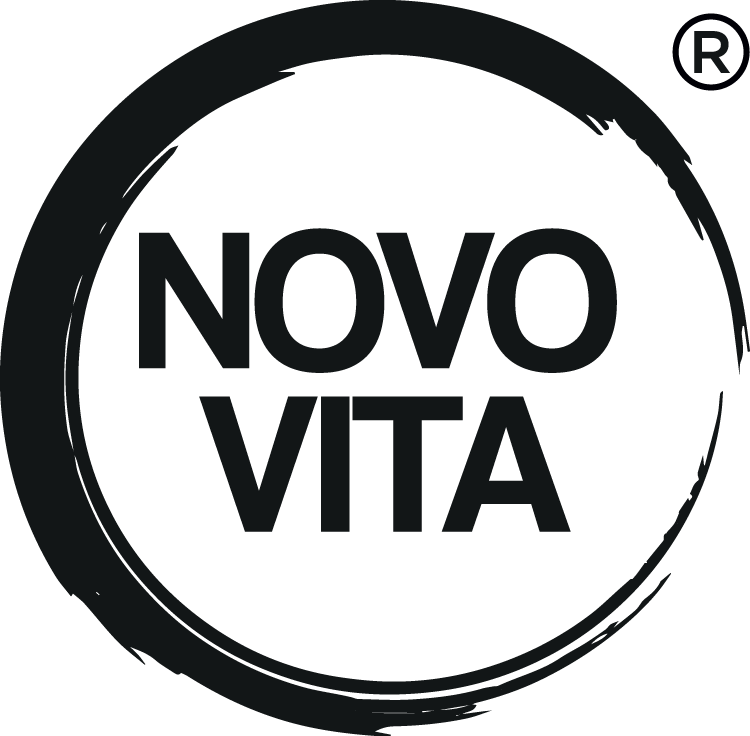What is Vitamin C?
Vitamin C or ascorbic acid is an essential water-soluble vitamin that dissolves in
water and is naturally present in some foods, added to others, or available as a
dietary supplement. The human body cannot endogenously synthesize vitamin C.
For this reason, it must be taken daily with diet, otherwise if the food intake is limited for some reasons, such as low food availability or higher nutritional needs, supplementing your diet with extra vitamin C is recommended.
Vitamin C is a known for its potent antioxidant activity, helping to protect our cells from damage caused by free radicals and reduce oxidative stress, which is highly associated with a risk of cardiovascular disease (atherosclerosis), some cancers, diabetes, neurodegenerative diseases (Alzheimer’s disease, Parkinson’s disease) and other.
Vitamin C benefits and its physiological functions:
Potent Antioxidant - helps to protect cells from free radical damage and reduce the risk of oxidative stress, which is closely associated with inflammation and development of chronic diseases.
Enzyme Support - Maintains a healthy nervous system by supporting enzymes that process messages between neurones in the brain.
Collagen co-creator - participates in collagen synthesis, building material for
tendons and ligaments, skin, cornea, bones, blood vessels and cartilage.
Iron Absorption Enhancer - enhances the absorption of non-heme iron from plant-based foods.
Immune Supporter - Vitamin C contributes to normal functioning of the immune system, and by that reduced the susceptibility to infections.
Helps to maintain healthy skin! - Vitamin C contributes to the normal collagen synthesis and support the maintenance of normal skin health, plus, due to its potent antioxidant activity it helps to combat the adverse effects of sun exposure and helps prevent UV-induced free radical damage, and reduce the appearance of uneven skin tone, wrinkles and hyperpigmentation.
Vitamin C occurs naturally in many fruits and vegetables, especially citrus fruits and juices, dark green leafy vegetables, peppers, and berries.
Which foods are the best sources of vitamin C?
Red and green peppers, acerola berries, brussels sprouts, oranges and orange
juice, mango, papaya, citrus fruits, pineapple, kiwi fruit, red berries, dark green leafy vegetables, cauliflower, cabbage
C-Organic + Ø

C-Organic + by Novo Vita is a particularly exclusive vitamin C supplement as opposed to synthetically produced vitamin C supplements because it contains nothing but a pure extract of organic acerola berries and provides 240 mg of Vitamin C per daily dose!
Acerola berry is one of the richest natural sources of ascorbic acid (Vitamin C) with the range of 1500–4500 mg/100 g, which is around 50–100 times that of orange or lemon! It contains a plethora of plant compounds called phytonutrients like carotenoids, phenolics, anthocyanins, and flavonoids, which are known for their potent antioxidant activity!
Some studies have also shown that Acerola berry's nutrient profile is associated with numerous health benefits, such as protecting cells from oxidative stress, maintaining normal metabolism, and promoting normal functioning of the immune system.
Find this product here: https://novovita.dk/products/c-organic-plus?_pos=1&_sid=b7c5c7750&_ss=r
References:
https://www.ncbi.nlm.nih.gov/pmc/articles/PMC6098779/
https://www.researchgate.net/publication/318985031_Vitamin_C_Sources_Functions_Sensing_and_Analysis
https://ods.od.nih.gov/pdf/factsheets/VitaminC-Consumer.pdf
https://www.researchgate.net/publication/320843979_Vitamin_C_and_Immune_Function
https://www.researchgate.net/publication/319347502_The_Roles_of_Vitamin_C_in_Skin_Health

